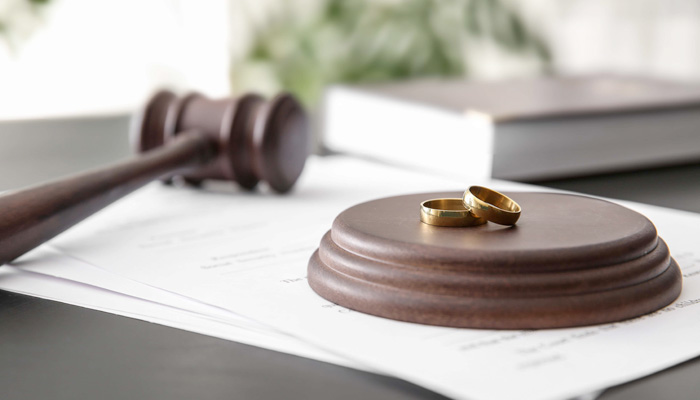
When you plan for the future, one of the most important legal tools available is a power of attorney. Whether you’re thinking ahead for unexpected medical issues, planning for long-term incapacity, or managing financial matters, a power of attorney (POA) can provide you and your loved ones with peace of mind. At Gruber, Colabella, Thompson, Hiben & Montella, we help individuals and families in Sussex, Morris, and Warren counties understand, draft, and execute legally sound powers of attorney that comply with New Jersey law. Contact our New Jersey power of attorney lawyers for assistance today.
What is a Power of Attorney?
A power of attorney is a legal document that allows one person, known as the “principal,” to grant authority to another person, known as the “agent” or “attorney-in-fact,” to act on their behalf. These powers can be broad or limited, temporary or long-term, depending on the needs of the principal and the type of POA being created.
The principal is the person who creates the power of attorney. They decide who they want to designate as their agent and what powers that agent will have. The agent, in turn, has a fiduciary duty to act in the principal’s best interest. That means making decisions honestly, responsibly, and within the scope of the authority granted.
In New Jersey, powers of attorney are commonly used to handle financial matters such as banking, real estate transactions, and tax filings. They are also often used in healthcare planning to allow a trusted person to make medical decisions if the principal becomes unable to do so.
Importantly, the principal must be mentally competent at the time the POA is executed. If the principal is already incapacitated, they cannot legally grant power of attorney. This is why it is crucial to put these documents in place before a crisis occurs.
Types of Powers of Attorney
In New Jersey, there are several types of powers of attorney, each designed to serve different legal and practical purposes. Choosing the right one depends on your unique circumstances, and it’s important to understand what each type entails.
- General power of attorney:
- Grants broad authority to the agent to manage the principal’s financial affairs.
- Often used when the principal is temporarily unable to manage their own finances or when they simply prefer that someone else handle them.
Ends automatically upon the principal’s death or incapacity, unless it is also a durable POA.
- Durable power of attorney:
- Remains in effect even if the principal becomes mentally or physically incapacitated.
- Must include specific language stating that the power survives the principal’s incapacity.
- Commonly used for long-term planning, particularly among seniors and individuals with chronic illnesses.
- Limited (or Special) power of attorney:
- Grants the agent authority to act only in a specific situation or for a specific transaction.
- Useful for real estate closings, managing one bank account, or signing documents while the principal is out of the country.
- Automatically expires once the specific task is completed or the set time period ends.
- Springing power of attorney:
- Becomes effective only upon the occurrence of a specific event, typically the incapacity of the principal.
- Must be clearly worded to define what constitutes incapacity and how it will be determined (usually by a licensed physician).
- Not as commonly used due to potential delays and legal uncertainties in proving incapacity.
- Medical (or Healthcare) power of attorney:
- Allows the agent to make medical decisions for the principal if they are unable to do so themselves.
- Often paired with a Living Will or Advance Directive for a more comprehensive healthcare plan.
- In New Jersey, this is frequently referred to as a “proxy directive.”
- Financial power of attorney:
- A more targeted version of a general POA focused solely on financial and property matters.
- Can be limited or durable, depending on the needs of the principal.
What Makes a Power of Attorney Valid in NJ?
Creating a power of attorney in New Jersey involves more than just filling out a form. For the document to be valid and enforceable, it must meet certain legal requirements outlined under N.J.S.A. 46:2B-8.1 through 46:2B-19.
- Mental Capacity: The principal must understand the nature and consequences of the document at the time of signing. If there is any doubt about the principal’s mental state, a medical opinion may be necessary.
- Proper Execution: The POA must be signed by the principal and notarized. While not legally required in all cases, having the document witnessed adds an extra layer of credibility and helps prevent future disputes.
- Clear and Specific Language: Vague or overly broad language can render parts of a POA unenforceable. For a Durable power of attorney, the document must include exact wording that states it remains effective even in the event of the principal’s incapacitation.
- Compliance with New Jersey Statutes: New Jersey recognizes POAs executed under the Uniform power of attorney Act. A valid POA should reference the appropriate statutes and clearly list the powers granted to the agent.
- Agent Acceptance: While not mandatory, it is advisable that the agent sign an acknowledgment of their role and responsibilities. This document, known as a “Notice to Agent,” helps ensure the agent understands their fiduciary duties.
Contact Our New Jersey Power of Attorney Lawyers
At Gruber, Colabella, Thompson, Hiben & Montella, we assist clients across Sussex County, Morris, and Warren Counties with the preparation, review, and legal execution of all types of powers of attorney. We understand that every individual and family has different needs, and we tailor every document accordingly. If you’re considering creating a POA or need help interpreting an existing one, contact us today to schedule a consultation with one of our experienced estate planning attorneys.
© 2025 Gruber, Colabella, Thompson, Hiben & Montella. All rights reserved. Attorney advertising.


